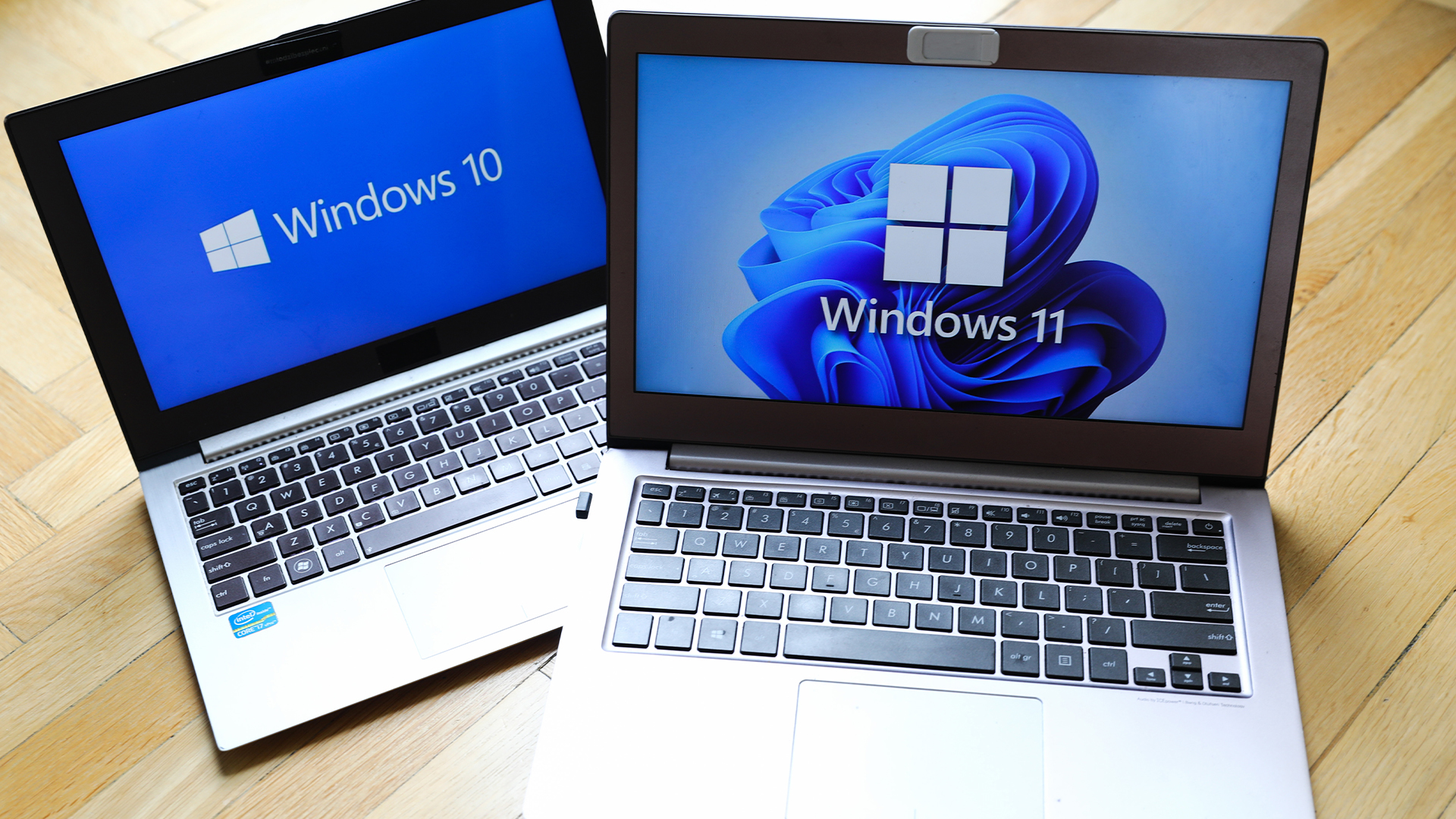Android O release date, name and features: Android Oreo now available on Honor 9 and 8 Pro
The update brings speed optimisations, plus a tailored user experience in the form of Smart Tips

Previous Android Oreo news
26/10/2017:Samsung has made it clear that the Galaxy S8 and Galaxy S8 Plus probably won't get Android Oreo until early 2018.
However, it's not certain whether this will apply to Galaxy S8 devices the world over or just in Turkey, where the announcement was made.
"Our work on our pilot model for Android 8.0 (Oreo) has begun.We aim to present the new operating system to you at the beginning of the new year,"the company's websitereads.
However, an FAQ further down the page asked why the update will arrive later in Turkey compared to the rest of Europe. This would suggest that actually, it's only the Turkish version that's due to be delayed rather than the global rollout.
In the past, the flagship devices usually get Android updates first, though the process is delayed by each manufacturer putting their own 'skin' on Android - essentially creating a custom version for their devices.
23/10/2017:Android may hide users' browsing histories in future, according to reports.
Possible support forDNS (domain name server) over TLS, as reported byXda-developers,would mean developers can switch the feature on and off under Developer Options. When enabled, the feature would prevent a DNS from logging or seeing what websites a user visits.
Sign up today and you will receive a free copy of our Future Focus 2025 report - the leading guidance on AI, cybersecurity and other IT challenges as per 700+ senior executives
Xdaspottedseveral new commitsto the Android repository suggesting Google's Android team may support the feature, though no timeline is given.
But the publication predicted that if such a feature is being added to the Developer Options, then it may arrive in a future version of Android.
TLS, the Transport Layer Security, helps encrypt user traffic, and while it doesn't allow users to be fully anonymous, it does allow them to hide DNS requests from ISPs.
This would be significant in the UK at least, where the Investigatory Powers Actcompels ISPs to keep a record of users' web browsing histories for 12 months.
09/10/2017:Pixel 2 will run Android Oreo out of the box
The Google Pixel 2 and Google Pixel 2 XL will run Android Oreo straight from the box, which Google is hoping will drive up adoption of the new operating system.
As it stands, Oreo has only been installed on around 0.2% of Android devices, making it one of the lesser-used Android operating systems, but being preinstalled on Google's next flagship smartphone would certainly help the new OS take off.
Although the OS has only just started rolling out to a selection of devices until manufacturers confirm they've fully tested the platform, we should cut it some slack. However, when compared to adoption of rival Apple's iOS 11, which was installed on 10% of devices just a day after it was released, the search giant is probably a little bit disappointed.
At present, Android Oreo is available on Google's own-branded Pixel and Pixel 2 smartphones, as well as Nexus 5X and Nexus 6P, with updates planned for the majority of Android device manufacturers including Samsung, LG, Motorola, Sony, HTC, Huawel an Asus.
As it stands, Marshmallow is still the most popular iteration of Android, running on on 32% of Android-powered devices, while Android Nougat is installed on 15.8% of handsets.
21/08/2017:Google has finally revealed the official name of the next version of Android : Android Oreo.
The company unveiled the moniker as part of an event in New York that coincided with the solar eclipse - the first eclipse to span both coasts since 1918.
This name will probably come as no surprise to those who have followed Android through its various iterations; although some have suggested that it may be called 'Oatmeal Cookie' or 'Orange Jell-o', Oreo has been the favourite for some time.
While today is the official launch of the operating system, it isn't actually available on any devices yet. The company has said it will be coming to own-brand devices the Pixel and Nexus ranges shortly. There's no timescale for other Android devices as yet, but thanks to Project Treble it should be arriving to third-party devices quicker than usual.
The update brings with it several new features, including support for picture-in-picture video, notification dots, more privacy controls and a redesigned emoji set.
21/08/2017:Google may have just inadvertently dropped further clues that its latest operating system will be dubbed Android Oreo.
The company released a Google+ post last Friday containing a teaser video related to the US solar eclipse, which Google is planning to use to reveal the name of its latest software update. The video's filename was GoogleOreo_Teaser_0817_noDroids (1).mp4, fuelling rumours that the latest iteration of Android will be officially titled Android Oreo.
However, it's possible that the filename was nothing more than a red herring. It was swiftly renamed to OctopusTeaser.mp4 after it was spotted by eagle-eyed observers, so it could be someone at Google attempting to mess with the legions of people trying to predict the upcoming software's name.
We'll find out what the official name of the software is this evening, which will coincide with the solar eclipse passing over the US. Google will be conducting a livestream at 7.40 BST.
14/08/2017:Android O could be getting its official release next week, according to rumours, along with the reveal of its full name.
The latest iteration of Google's mobile operating system was first debuted at Google I/O earlier this year, and has already gone through four developer previews. The final dev build was released late last month, indicating that the update should start arriving on users' phones imminently.
Many rumours have been circulating about when the official launch date will be, but according to prominent and time-tested leakster Evan Blass, Android O will start arriving on Google's Pixel devices next week.
August 21 coincides with a solar eclipse in the US, leading to speculation that the launch will be tied into the astronomical event. It fits the overall theme of the release, as an 'O' shape will be formed by the moon passing in front of the sun.
If this is true, August 21 is also likely to be when we'll finally find out Android O's full name. Google has a tradition of naming its Android releases after various treats, such as Marshmallow, Honeycomb and KitKat.
Android fans have been amusing themselves in the run-up to the official announcement by predicting what the latest version will be named after, with guesses including Oreo, orange cream and oatmeal cookie.
Oreo is currently the popular favourite, but skeptics have also pointed out that the only other time Google has named a release after a trademarked product is for Android KitKat - which was largely driven by a lack of treats beginning with the letter 'K'.
If Blass is correct, fans may not have to wait long to find out, however. As with all Google's Android updates, owners of Google's first-party Pixel devices will receive the update first, followed by older Nexus models.
25/07/2017:Google has released the fourth and final developer preview for Android O, marking the last hurdle before the software's official release later this summer.
The latest dev preview is a 'release candidate build', meaning that it's as close as developers are going to get to the finished product before the final rollout begins. This will allow developers to test their updated apps to check compatibility with Android O.
The preview will be pushed out as an over-the-air update to any eligible devices which are enrolled in the preview programme, including the Google Pixel and Pixel XL, the Nexus 5X and 6P and more. The update can also be downloaded and manually flashed onto devices.
The final preview doesn't introduce any new features; instead, it focuses on improvements to stability, general bug fixes and other under-the-hood tweaks. The main goal is to ensure that when Android O arrives on users' smartphones, there are plenty of apps that can take advantage of all the shiny new features.
The stable version of the Android 26.0.0 Support Library is included with this release, as are the final APIs, which have been included since the third preview. A new version of the Android Testing Support Library is also soon to be released, which features new tools like Multiprocess Espresso, Android Test Orchestrator and others.
The newest version of Android is set to arrive with users this summer, most likely in August. The update will arrive with owners of Google's flagship Pixel phones, followed by older Nexus devices like the 5X and 6P.
Following the release of Android O, the timeframe for non-Google devices to get the latest updates should also be substantially reduced, thanks to the company's Project Treble initiative, which aims to cut out many of the steps needed for pushing out an update to users.
23/06/2017:Google hasn't officially revealed the codename for Android O, which is normally named after a tasty treat, but reports suggest it may be "Oatmeal Cookie".
Onereportspotted references to the dessert-themed name in Android 8.0 source code, noting frequent references to "oc-dev".
Of course, "oc" could stand for another dessert, but the find followsother sharp-eyed Google fansnoticing references to "oatmeal_cookie" in slides shown off at Google IO earlier this month.Google staffers could be leaking the name to throw us off the scent, but the codename doesn't actually matter, with the OS officially known by its release number.
That doesn't stop the speculation around the term that usually comes alongside such an update, with many suggesting it could be called Android Oreo. Previous codenames have been Kitkat, Lollipop and Nougat, going further back to Eclair and Froyo (Frozen Yogurt), with Google setting up an Android character at its headquarters themed around the dessert of choice.
Main image credit: Google

Clare is the founder of Blue Cactus Digital, a digital marketing company that helps ethical and sustainability-focused businesses grow their customer base.
Prior to becoming a marketer, Clare was a journalist, working at a range of mobile device-focused outlets including Know Your Mobile before moving into freelance life.
As a freelance writer, she drew on her expertise in mobility to write features and guides for ITPro, as well as regularly writing news stories on a wide range of topics.
-
 Can enterprises transform through startup theory?
Can enterprises transform through startup theory?In-depth For big corporations, the flexibility, adaptability, and speed of a startup or scale-up is often the total opposite of what’s possible within their own operations
-
 AI is creating more software flaws – and they're getting worse
AI is creating more software flaws – and they're getting worseNews A CodeRabbit study compared pull requests with AI and without, finding AI is fast but highly error prone
-
 Windows 10 extended support costs could top $7 billion
Windows 10 extended support costs could top $7 billionNews Enterprises sticking with Windows 10 after the October deadline face huge costs
-
 Tiny11 review: Windows 11 with only 2GB of RAM
Tiny11 review: Windows 11 with only 2GB of RAMReview A version of Windows 11 for older machines that don't meet the full requirements
-
 Red Hat Enterprise Linux becomes foundational operating system for Cohesity Data Cloud
Red Hat Enterprise Linux becomes foundational operating system for Cohesity Data CloudNews New strategic partnership between Red Hat and Cohesity aims to drive innovation in the data security and management space
-
 Ubuntu shifts to four-week update cycle
Ubuntu shifts to four-week update cycleNews Critical fixes will also come every two weeks, mitigating the issues involved with releasing prompt patches on the old three-week cadence
-
 AlmaLinux follows Oracle in ditching RHEL compatibility
AlmaLinux follows Oracle in ditching RHEL compatibilityNews Application binary compatibility is now the aim with 1:1 now dropped
-
 How big is the Windows 10 cliff-edge?
How big is the Windows 10 cliff-edge?ITPro Network With some comparing the upcoming Windows 10 end of life to Windows XP, we ask members of the ITPro Network for their insight
-
 Everything you need to know about the latest Windows 11 updates - from bug fixes to brand-new features
Everything you need to know about the latest Windows 11 updates - from bug fixes to brand-new featuresNews Two new cumulative updates are on the way and will be installed automatically on Windows 10 and Windows 11 machines
-
 How to download a Windows 11 ISO file and perform a clean install
How to download a Windows 11 ISO file and perform a clean installTutorial Use a Windows 11 ISO to install the operating system afresh

